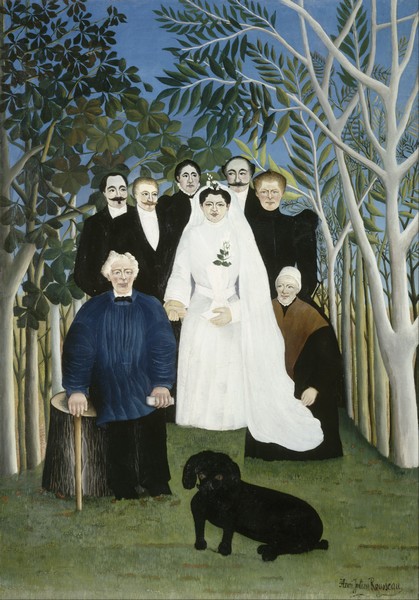
During the years 1898-1899, linguist Hubert Pernot and composer Paul Le Flem made a scientific journey to the island of Chios, at that time still under Ottoman rule; it was most likely the first approach to Greek ethnomusicology, and both men returned to Paris with a hundred songs recorded in wax cylinders; the first edition of the songs, transcribed by Le Flem, were published in 1902.
One day in 1904, Maurice Ravel was asked to harmonize five traditional Greek songs, some pieces Pernot and Le Flem collected. They were to be performed in an academic context, a lecture that musicologist Pierre Aubry would give on the songs of two oppressed peoples: the Greeks, and the Armenians. I don't know why they didn't use the recordings, the most reliable way to present them; maybe they didn't find them. The wax cylinders remained lost somewhere at the University of La Sorbonne until after World War II. The point is, they needed someone to sing those songs, and they had little time to prepare everything. The singer was Louise Thomasset, who didn't know Greek and had to learn the texts phonetically; besides, it was unusual music; all in all, too risked to sing a cappella, and she asked for some accompaniment. Michel Dimitri Calvocoressi, who was helping her to learn the Greek lyrics, and was a friend of both Aubry and Ravel, asked the composer to harmonize the songs; he also asked him to hurry up because there were only thirty-six hours left before the concert.
That's how Ravel was involved at that lecture. The composer did his part, and the arrangements were ready on time; later, he threw away three of the scores, and kept just two. It seems that he wasn't satisfied with his work.
Calvocoressi didn't go to Ravel for help only because they were friends (only a good friend would do such a favour); he chose him because they had other common interests. Both were members of a group of musicians and writers who called themselves '"Les Apaches" (nothing to do with Indians, it was a colloquialism for rascal). They were artists interested in the avant-garde; among the themes they dealt with was the recovery of traditional music and its incorporation into the music of the time. Thus, Calvocoressi asked Ravel to harmonize several more songs, this time without deadline. The composer selected three pieces that, together with the two he had kept, formed a small cycle; the work was premiered with the original Greek lyrics and was sung by Marguerite Babaïan, an Armenian singer who, once permanently installed in Paris that year, would specialize in the recovery of the European musical heritage.
However, the songs were published in French, Calvocoressi made the translations, and this is the song cycle we know as Cinq chansons populaires grecques (the songs Ravel kept from the first order are the third and fourth). We could roughly say they describe a wedding. At the first song, Le reveil de la mariée, the groom sings an aubade to the bride; the second, La-bas, vers the église, implicitly recalls the massacre that Chios suffered during the Greek War of Independence; at Quel galant m'est comparable the groom shows off, self-satisfied; Chanson des cueilleuses de lentisques is a work song of the collectors of mastic resin, one of natural wealth of the island. Maybe it's sung by the women that watch the wedding procession, or maybe the bride is one of them. Finally, Tout gay! is a dance.
This week we're listening to the first song in the cycle, Le reveil de la mariée or Chanson de la mariée, as it's also known, performed by Sabine Devieilhe and Alexandre Tharaud. I hope you like it!
Réveille-toi, réveille-toi, perdrix mignonne,
Ouvre au matin tes ailes.
Trois grains de beauté,
mon cœur en est brûlé!
Vois le ruban d'or que je t'apporte,
Pour le nouer autour de tes cheveux.
Si tu veux, ma belle, viens nous marier!
Dans nos deux familles, tous sont alliés!
Awake, awake, my darling partridge,
Open to the morning your wings.
Three beauty marks;
my heart is on fire!
See the ribbon of gold that I bring
To tie round your hair.
If you want, my beauty, we shall marry!
In our two families, everyone is related!
(translation byEmily Ezust)


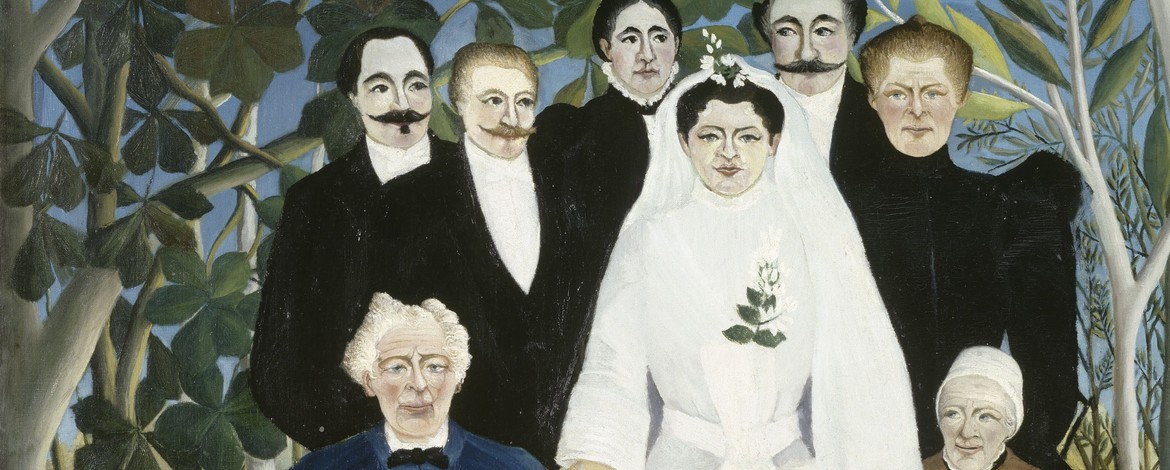
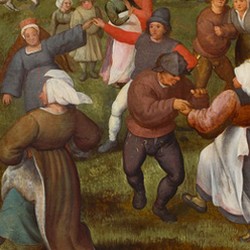
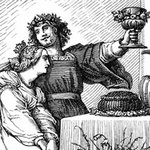 The K...
The K...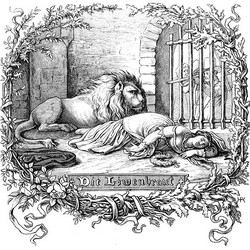












Comments powered by CComment